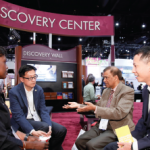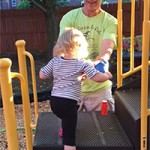 Improving access to rheumatology care for underserved patient populations is a priority for the ACR, and the subject of a major position statement by the Committee on Rheumatologic Care (CORC) in 2017. According to the ACR’s 2015 Workforce Study, the existing shortage of rheumatologists and rheumatology health professionals is expected to worsen in the next 15 to 20 years.
Improving access to rheumatology care for underserved patient populations is a priority for the ACR, and the subject of a major position statement by the Committee on Rheumatologic Care (CORC) in 2017. According to the ACR’s 2015 Workforce Study, the existing shortage of rheumatologists and rheumatology health professionals is expected to worsen in the next 15 to 20 years.
In a new project, Volunteers to Expand Rheumatology Access (VERA), the ACR wants to connect rheumatologists, fellows, medical students and residents to patients who have inadequate access to rheumatology care. VERA was proposed by two ACR members, rheumatologists Robert Shmerling, MD, and Liana Fraenkel, MD, who are co-chairing the project. VERA is supported by the ACR through the Collaborative Initiatives (COIN) department.
“The idea came out of conversations that Liana and I had with my wife, who was the executive director of the MAVEN Project, an organization that links volunteer doctors with underserved communities,” says Dr. Shmerling, a rheumatologist at Beth Israel Deaconess Medical Center in Boston. MAVEN, or Medical Alumni Volunteer Expert Network, matches volunteer physicians to patients through a telehealth network.
“Recognizing that many patients find it difficult to get rheumatologic care, we realized the ACR could be a valuable resource if it helped link ACR members who wanted to provide free care and expertise with those who needed their help. We thought that many ACR members—whether early, middle or late in their careers—might be willing and interested in volunteering, but not know how to get started. VERA was born out of this.”
VERA was launched in July 2018 and runs through June 2019. It is meant to be a pilot project in its first year. Dr. Shmerling and Dr. Fraenkel distributed a call for Letters of Interest to the ACR membership in August 2018 to help build a task force of potential volunteers.
“The VERA task force includes several early-career rheumatologists who will help shape the goals and implementation of this project,” says Dr. Shmerling. “Over time, we hope to attract many rheumatology trainees, who can provide a vital perspective about how to reach out to the ACR membership and connect with community organizations, practices and clinics.” VERA may provide an opportunity for trainees to develop more experience, and for students to shadow experienced rheumatologists as they provide care.
“Many trainees have had recent experiences in medical school or residency providing care in free clinics or in other countries where resources are scarce,” says Dr. Shmerling. “Based on these experiences, they can inspire and encourage others to get involved in VERA. We hope to become a clearinghouse for volunteer opportunities for those at any level of training. It’s particularly important to engage those at the beginning of their careers, because volunteering in this way can become a ‘good habit’ that’s hard to break.”
VERA may be an opportunity for rheumatologists later in their careers or in retirement to fill gaps in care for underserved patients, he adds.
“When it comes to any medical care, there’s always an important role for those who have experience, and that’s certainly true for rheumatologic care,” he says. “So middle- and late-career rheumatologists, including those who may have already retired, can make a huge difference in the life of a patient who cannot find or afford a rheumatologist, or whose primary-care doctor needs some advice.”
In its first year, VERA’s co-chairs will define sites of care, identify key stakeholders (including ACR members who may wish to volunteer and third-party organizations that may be potential partners) and determine indicators of need, such as geographic sites with limited access to a rheumatologist. All of this information could then be stored in a VERA clearinghouse.
Like the MAVEN Project, VERA’s co-chairs will also “explore how best to use telemedicine approaches to expand access to care,” says Dr. Fraenkel. “We are also cognizant of the need to gather information related to potential barriers, such as malpractice coverage.”
During the first year, Drs. Shmerling and Fraenkel will conduct a needs assessment and evaluation of the project to determine if it can continue. They hope the project will one day expand access to rheumatology care that is truly affordable, says Dr. Shmerling.
“We’d like to target those patients who have the hardest time getting care, regardless of the reason. It could be financial constraints, lack of rheumatologists in their region, or other factors,” he says. “We’ve only just begun this project, so it’s too soon to say which specific populations or communities will be targeted first.”
VERA’s co-chairs do not view the project as a way to create sites of free rheumatology care, but to identify “resources that will enable rheumatologists to provide free, in-person or remote care via telemedicine” to patients who need it, says Dr. Fraenkel. Both she and Dr. Shmerling stress their goal is not to replace existing organizations or local clinics that provide care to these patients, but to connect rheumatologist volunteers to those programs.
In the other COIN projects, including several covered in this series, ACR and ARHP members work together to positively impact the rheumatology community, including:


